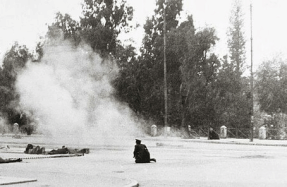

It is not uncommon for both sides involved in a battle to claim victory. Desperate commanders terrified of disgrace, propaganda machines at home demanding success, even confusion in the aftermath of a battle can all lead to conflicting reports of the outcome. However, it is less common for both sides to have a valid claim to victory.
The naval confrontation known as The Glorious First of June in Britain and Bataille du 13 prairial an 2 in France is one of the exceptions. Each side sailed away from a brutal, prolonged fight satisfied that they had done their duty, and each side was justified in their opinion.
Background
In 1794, France was slowly starving. The upheaval of the revolution, coupled with bad weather, had led to meagre harvests. France’s enormous new armies were sucking up manpower, including many agricultural workers, and in some regions there were too few available to gather the crops.
On the battlefield, France had cause for optimism, but if the new armies could not be fed, the new French Republic might die in its cradle. Food needed to be found somewhere, but France had few friends. One sympathetic power, the newly formed United States of America, was officially neutral but willing to assist the country that had done so much to win America’s independence from Britain. With the help of a middle-man (so that there was no direct interchange of money or produce between the two nations) a massive supply convoy was gathered off the east coast of America.
Among the supplies were 67,000 barrels of flour, as well as coffee, cotton, salted beef, bacon and more. An escort of 12merchantmen (around 156 transport ships made up the convoy, with some estimates even higher). The vast quantities of food promised salvation, at least for a while, for the beleaguered French.






